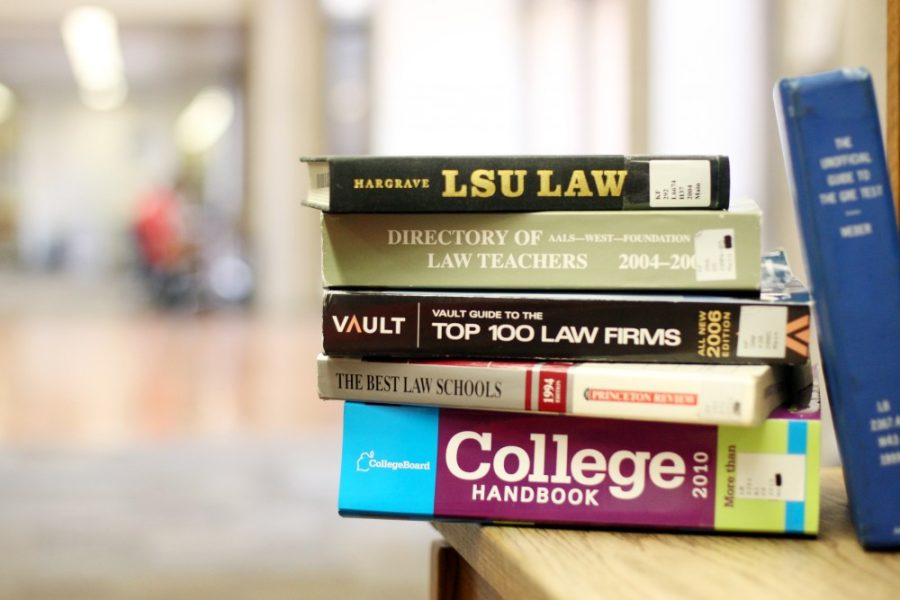After partnering with Educational Testing Service, the UA James E. Rogers College of Law is the first law school to open admissions accepting Graduate Record Examination scores alone.
The law school will now accept applicants who took either the Law School Admission Test or the GRE, based on a recent study that suggests both tests are reliable and valid predictions of first-term law school grades.
College of Law Dean Marc Miller said this change will increase diversity because it will create a larger base of students who can apply for or consider going to law school.
While the LSAT is only offered four times a year, the GRE is less expensive to take and prepare for and can be taken five times within a year, according to Miller.
“We now have a mechanism that makes it much easier for students to apply,” Miller said. “Roughly 100,000 students take the LSAT a year and 550,000 take the GRE.”
Associate Dean for Research and Innovation, Christopher Robertson, said he led efforts to conduct the validity study on campus by recruiting 78 students currently in the College of Law to either share their previously taken GRE scores or get the fee waived to take the GRE and share their scores.
Robertson said that ETS set up a testing site at the UA for students to take the GRE to see if their tests were both reliable and valid tools for predicting law school success.
“ETS is the world’s largest educational research and measurement organization,” said ETS Vice President David Payne. “We are a large organization and we deliver about 60 million tests a year around the globe.”
There was a strong partnership throughout the study after first being approached by the UA, Payne said.
“Tests like the GRE are the one tool you can use that are consistent throughout all your applicants,” Payne said. “The GRE levels the playing field.”
Payne said he applauds Miller and his colleagues for what they’ve done because it’s going to open opportunities for students.
ETS research scientist David Klieger said the group conducted a study to look at the reliability and validity of the GRE test in law school admissions in order to satisfy the American Bar Association’s requirement.
The ABA requires that standardized tests used for law school admissions be a reliable and valid indicator of the likelihood for success in law school. Klieger found the GRE to be just that.
“We used standard types of statistical analysis including correlation, regression and contingency tables,” Klieger said. “We looked at both GRE schools and performance in the first term of law school in terms of grades and the numbers were quite robust.”
Second year UA law student Renee Gantert said she’s excited to see where this takes the UA, since it’s the first to open admissions to GRE test takers.
“For me, one of the reasons I chose UA is because I could tell they were always looking for ways to make the school better for the students,” Gantert said. “To me, this [is] another confirmation that they are.”
Gantert said she realized when she got here that not everyone was on the straight path for law school like she was, and she now sees how the GRE change is going to make a difference for a lot of people.
Payne said they are currently working on similar studies with two other institutions, but the goal is to conduct one overall study with multiple and diverse law schools to see if the GRE would function the same way at other institutions.
“Our goal is to admit the strongest students that will eventually become legal professionals, and we think that the way to do that is to look at all aspects of a student,” Robertson said. “What this allows us to do is to have more flexibility.”
This new change will not affect the college’s admission process in terms of the number or quality of students accepted into the program, according to Miller.
“We like being a small program where we can get to know the students extremely well, where they can take most of their classes in a very small setting,” Miller said. “This is not intended to change that. We will continue to seek strong classes of students.”
Follow Chastity Laskey on Twitter.









